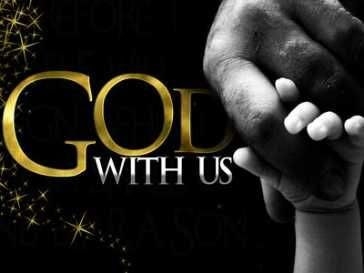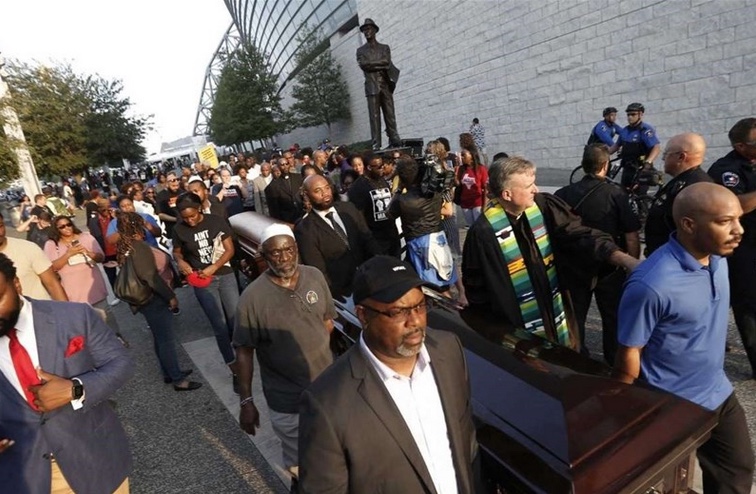Staff Retreat - God With Us
/by Ken Kelley
The church staff met in retreat on Monday and Tuesday of this week to plan for Advent and the first half of next year. We had previously decided on a theme for Advent of God With Us and searched for ways to celebrate God’s presence in our midst as we anticipate Emmanuel’s birth. Plans for Advent include our long-standing traditions including three services on Christmas Eve, our newer traditions of creative family activities throughout Advent, and new opportunities such as a multi-generational Christmas Eve celebration at the Meridian.
As Kay reflected on our two days together, she wrote, “I, too, am excited about the events we have planned for the upcoming months. This will be my first Christmas at KPUMC, so I am really looking forward to our Advent Family Workshop and multiple Christmas Eve opportunities. In so many of the ideas that we calendared, there are lots of opportunities for our amazing KPUMC children to not only participate, but to grow through leadership and blessings. On a personal note, ‘God with Us’ or in other words, the Doctrine of Incarnation, is one of my favorites!”
Kay’s remarks certainly reflect her enthusiasm for children’s ministry, but what struck me most about our time together, especially as we planned for next year and dreamed about the future, was that Kay and all members the staff creatively look way beyond their own focus of ministry. A shining example of this is shown by Jonathan suggesting that we continue our theme of God With Us into Lent. For those of you who don’t know, Jonathan is Jewish. And his reminding us that God is indeed with us through birth, life, death, and resurrection stands out as a stellar example of us broadening our horizons.
Our vision for next year and beyond certainly includes broadening our horizons by developing and expanding our relationships with Wesley Rankin, schools, and other organizations in new and exciting ministries.
To develop partnerships with black and Hispanic churches as we nurture and serve each other as God’s children.
To find new ways to build community and extend hospitality both to our Kessler neighbors and our larger community - including hosting interfaith services and having a Seder led by a rabbi.
We also find it important to keep you informed of the work of The Commission on a Way Forward which “was proposed by the Council of Bishops and approved by the 2016 General Conference to do a complete examination and possible revision of every paragraph of the Book of Discipline concerning human sexuality and explore options that help to maintain and strengthen the unity of the church.” Wes will continue to provide us information about this important task, including the upcoming vote next February, beginning this Sunday during worship.
Wes summed up our time together by writing, “What was most exciting to me about the two-day retreat was that the staff spent time together and that there is a real sense that we have begun to coalesce around a common goal and purpose of fostering discipleship and transformational growth. We really do want to help people grow in faith: to welcome all sorts of people into our doors while also being concerned about what happens outside of our doors, to be in connection with each other, to go deeper in their personal spiritual disciplines, and to serve the people of our city and neighborhoods.”
God is indeed with us all, and these plans further put in motion years of work by our lay committees: two series of Holy Conversations, the Vision Task Force, Catalyst training, Catalyst groups, and many other meetings and planning sessions. All of you are the ministers KPUMC, and I pray that you fully discover what that might mean for you.
I invite you to take a retreat from your daily routine by spending some quiet time considering where God is in your world, what difference God’s presence makes in your life, and reflecting on “A Statement of Faith of the United Church of Canada”:
We are not alone,
we live in God’s world.
We believe in God:
who has created and is creating,
who has come in Jesus,
the Word made flesh,
to reconcile and make new,
who works in us and others
by the Spirit.
We trust in God.
We are called to be the Church:
to celebrate God’s presence,
to live with respect in Creation,
to love and serve others,
to seek justice and resist evil,
to proclaim Jesus, crucified and risen,
our judge and our hope.
In life, in death, in life beyond death,
God is with us.
We are not alone.
Thanks be to God.
Ken




